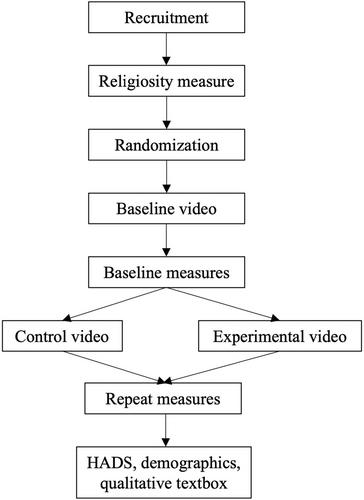Acknowledging religion in cognitive behavioural therapy: The effect on alliance, treatment expectations and credibility in a video-vignette study
Abstract
Objectives
Developing mental health services which are accessible and acceptable to those from minority backgrounds continues to be a priority. In the United Kingdom, individuals who identify with a religion are underrepresented in Talking Therapies services as compared to those with no religion. This necessitates an understanding of how therapy is perceived. This online study explored the impact of explicitly acknowledging religion on anticipated alliance, treatment credibility and expectations of therapy in a non-clinical sample of British Muslims.
Methods
A video-vignette experimental design was used in which participants who self-reported as either high or low in religiosity were randomly allocated to receiving information about cognitive behavioural therapy either with or without an explicit mention of religion as a value in the therapeutic process.
Results
One hundred twenty-nine British Muslim adults aged 18–70+ years from various ethnic backgrounds participated in the study. Between-subjects ANOVAs showed that scores on the perceived credibility of therapy and treatment expectations were significantly higher when religion was explicitly mentioned by the ‘therapist’, but that acknowledging religion did not impact upon anticipated alliance.
Conclusions
These findings suggest that mentioning religion as a value to be considered in therapy has some positive impacts upon how therapy is perceived by British Muslims. Although video vignettes do not provide insight into the complexity of actual therapeutic encounters, acknowledging religion in mental health services more broadly remains an important consideration for improving equity of access and may bear relevance to other minoritized groups.


 求助内容:
求助内容: 应助结果提醒方式:
应助结果提醒方式:


